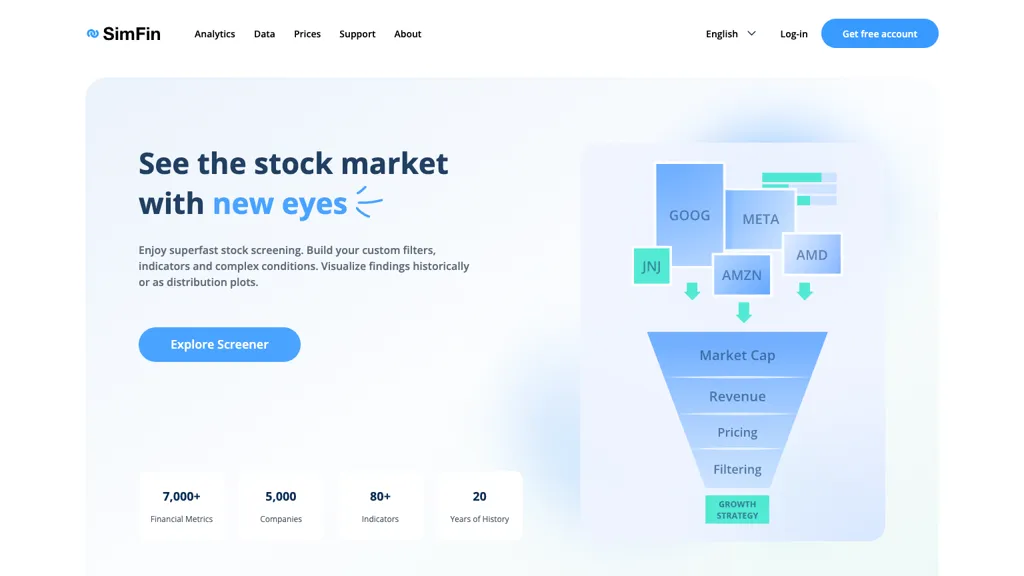Support for customers is an essential aspect when selecting the best AI trading platform for predicting or analyzing stocks. Support that is prompt and reliable is a key element in resolving issues, maximizing platform usage and ensuring smooth trading. Here are ten top suggestions for evaluating the customer support of these platforms.
1. Review Support Accessibility
24/7 Support: Find out whether the platform provides round-the-clock assistance. It's crucial, especially for trading on international markets.
Hours of operation. If 24-hour support isn't available, make sure to check that you have support available during the trading hours.
Holiday coverage: Check to see if you can get assistance on weekends, holidays and closings of markets.
2. Test Response Times
Initial response: Contact support with a test question to determine the speed at which they respond.
Resolution time: Determine the length of time required to solve a problem.
Live chat test the responsiveness and efficacy of live chat, if it's available.
3. Assess Support Channels
Multiple channels: Make sure the platform can handle multiple channels, such as live chat, email, telephone or social media.
The preferred channel: Make sure that the support channel you prefer (e.g., phone or chat) is available and trustworthy.
Self-service options are offered: Search for a comprehensive FAQ, a forum for community members or a complete knowledgebase to solve your problems fast.
4. Evaluate Support Quality
Expertise: Ensure support agents are knowledgeable about the trading platform, its features and technical issues.
Check your support agent's abilities to solve complex problems and escalate them in the appropriate manner.
Professionalism Examine whether the interactions with support have been professional, courteous and helpful.
5. Find Account Managers who have a passion for their job.
Premium support: Check if premium plans or institutional users have access to account managers.
Personalized assistance: Determine whether your account managers offer individualized support and a proactive approach.
Relationship Building: Ensure that your account managers that you work with are always available. You can also develop relationships over time.
6. Review Support Documentation
Knowledge base - Make sure that the platform offers an organized and searchable knowledge database with tutorials. guides, and tips to troubleshoot.
Video tutorials: Check whether the platform provides videos or webinars for those who prefer visual learning.
API documentation: Make sure you are a developer to see if there is an easy-to-read and precise API document.
7. Examining Peer and Community Support
Forums for users: Find out whether the platform has an active community of users or forum where users can offer suggestions and solutions.
Social media groups: Search for groups on unofficial social networks (e.g. Reddit. Facebook. LinkedIn), where users are discussing the platform.
Community engagement: Ensure that the platform team is active in community forums and discussions.
8. Evaluate Escalation Processes
Issue escalate. Make sure that you have a clear procedure for reporting unresolved matters to managers or other staff members at the top.
Follow-up Check whether Support follows up to confirm that the issue has been resolved.
Feedback loop: Determine if the platform collects user feedback in order to enhance support services.
9. Test Support during Critical Situations
Contact customer support in times of high volatility to find out how they react.
Technical issues: You are able to simulate a technical problem (e.g. login problems or data differences) to view the support team's response.
Trade executions: Determine if support can assist you with urgent trade-related issues (e.g. order failure, execution delays).
Look at the User Reviews
Online reviews: Research reviews from users on platforms like copyright, G2, or Reddit to gauge overall satisfaction with support.
There are testimonials available about positive experiences by searching case studies or testimonials.
Find out how the platform responds to complaints and negative feedback.
Bonus Tips:
Try the platform out with a demo or trial period.
Language support: Check whether you are able to get help in your native language, if you don't know English.
Onboarding and training Learn if there are any onboarding sessions that can aid new users to get on the right track.
These tips will help you assess the level of customer care offered by AI trading platforms that predict/analyze stock prices. Then, you will be able to select a company providing reliable, prompt, and efficient support. Customer support that is responsive and friendly can improve your overall experience. Have a look at the best https://www.inciteai.com/trader for more info including best ai trading software, options ai, ai trade, AI stock, ai for investing, trading ai, best AI stock, AI stock market, ai investment platform, AI stock trading app and more.

Top 10 Tips For Assessing Regulatory Compliance With Ai Stock Predicting/Analyzing Trading Platforms
Regulation compliance is an important factor in evaluating trading platforms that use AI. Compliance ensures that the operation of a platform is within legal guidelines. The data of the users is secure and financial regulations are adhered to and reduces the risk of legal problems. These are the top ten guidelines for evaluating regulatory compliance.
1. Verify Registration and Licensing
Regulators: Make sure the platform's registration and license is registered with the relevant financial regulatory authorities (e.g. SEC or FCA in the United States, ASIC or ASIC in Australia).
Verify partnerships with brokers. If the platform incorporates brokers, ensure that they are licensed and monitored.
Public records: Visit the official website of the regulator to verify the status of registration, as well as previous violations.
2. Check for Data Privacy Compliance
GDPR - If your website operates within the EU and/or serves users from the EU ensure that it is compliant with GDPR.
CCPA: California Consumer Privacy Act compliance is required for users.
Policies on handling data: Review the data privacy policy of the platform to determine how it describes the collection, storage, and sharing.
3. Examining Anti-Money-Laundering/AML Measures
AML policies - Make sure that the platform's AML policies are strong and effective to detect the existence of money laundering.
KYC procedures - Check that the platform complies with Know Your Customer procedures for verifying user identities.
Monitoring transactions: Find out whether the platform is capable of monitoring transactions and reporting any suspicious activity to the appropriate authorities.
4. Check for Compliance With Trading Regulations
Market manipulation: Make sure the platform is armed with measures to stop market manipulation such as washing trading or fake trading.
Order types. Verify that the platform conforms to all rules regarding order type (e.g. there's no illegal stop loss hunting).
Best execution : Ensure that the platform employs top execution methods to make trades at the most competitive cost.
5. Cybersecurity compliance assessment
Data encryption: Ensure the platform has encryption in place to protect the data of users in transit and at rest.
Response to incidents: Verify that the platform has an incident response plan in place to deal with cyber-attacks or data breaches.
Certifications - Check to see whether your platform holds any cybersecurity certifications.
6. Review Transparency and disclosure
Fee disclosure - Make sure all fees are made public, including extra charges or hidden costs.
Risk disclosure: Make sure the platform is transparent about the risks involved, particularly when you use high-risk strategies or trading using leverage.
Performance reports - Check for clear and accurate performance reports that are provided by the platform for its AI models.
7. Verify that you are in compliance with International Regulations
Cross-border Trading: If your trading involves international trade it is important to ensure that your platform is compliant with the requirements of each regulatory region.
Tax reporting: Determine if a platform has tools or reports to allow users to follow tax regulations.
Sanctions compliance: Ensure the platform is compliant with international sanctions and does not allow trading with banned organizations or nations.
8. Assess Record-Keeping & Audit Trails
Records of transactions: The platform must keep detailed records of every transaction that is used for audit and regulatory reasons.
User activity logs - Make sure that the platform logs all user activities including transactions that are made, and any changes to the account settings.
Audit readiness: Make sure the platform has all of the logs and documentation required to pass a regulatory review.
9. Examine compliance with AI-specific Regulations
Algorithmic Trading Rules If your broker supports algorithmic trading, ensure it adheres to rules such as MiFID II (in Europe) or Reg SCI (in the U.S.).
Fairness and Bias: Check for any biases the platform is able to control and minimize within its AI model. This will ensure ethical and fair trade.
Explainability: Ensure that the platform has clear explanations of AI-driven predictions and decision making as required by certain laws.
10. Review User Commentaries as well as Regulatory Historical History
Reviews from users: Perform research to assess the platform's reputation for the regulatory conformance.
Regulatory history - Check to determine if the website is known for any past penalties or violations of regulations.
Third-party audits: Check whether the platform is subject to regular third-party audits to ensure compliance with regulations.
Bonus Tips:
Legal consultation: Consult an expert on the subject to determine whether your platform is compliant with the regulations.
Trial period. You can use the trial or demo of the platform to try out its compliance features.
Customer support: Ensure the platform provides support for compliance-related queries or concerns.
These tips will help you evaluate the legality of AI trading platforms which predict/analyze the prices of stocks. In this way you'll be able select a platform that works within the legal frameworks and safeguards you. Compliance does more than minimize legal risks, it can also increase trust in the platform. See the recommended free AI stock picker blog for website tips including trading ai tool, free AI stock picker, best AI stocks, AI stock prediction, investing with ai, ai options, stocks ai, best ai trading platform, stock predictor, ai in stock market and more.
